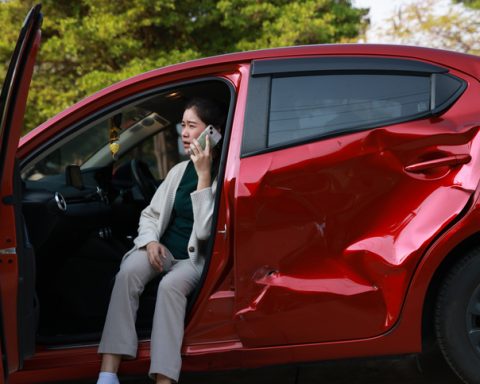Domestic violence isn’t just a family issue—it’s a legal one that cuts across both criminal and family law in complex and sometimes conflicting ways. In Texas, where domestic violence (or “family violence”) is defined broadly under Texas Family Code §71.004, an incident can lead to criminal charges, protective orders, and serious implications in ongoing custody or divorce proceedings.
This dual impact makes domestic violence cases uniquely challenging—and deeply consequential—for everyone involved.
Criminal Charges and Their Immediate Consequences
Under Texas Penal Code §22.01, domestic violence is typically prosecuted as “assault family violence.” Even a first-time misdemeanor can result in jail time, fines, and a permanent criminal record. For repeat offenses or cases involving strangulation, the charge escalates to a felony, carrying sentences of up to ten years in prison.
Once law enforcement responds to a domestic disturbance call, Texas officers are required by law to make an arrest if there is probable cause that an assault occurred. This means even minor disputes can trigger criminal proceedings long before a family court hears the other side of the story.
Sources like the Texas Department of Public Safety report tens of thousands of such arrests every year, a stark reminder that these are not isolated incidents—they’re systemic.
The Family Court Repercussions
Criminal charges for domestic violence often lead directly into family court issues. Protective orders, temporary restraining orders, and emergency custody changes are common. Family courts take allegations of violence seriously; judges can suspend visitation rights, alter custody arrangements, or even terminate parental rights under extreme circumstances.
According to the Texas Judicial Branch’s Family Violence Benchbook, judges must consider any history of family violence when deciding custody. Even without a conviction, a single credible allegation can change the course of a divorce or custody case.
This is where the legal overlap becomes critical—actions taken in criminal court (such as no-contact orders) can directly influence your standing in family proceedings, sometimes unintentionally.
Protective Orders: Bridging Both Systems
Protective orders sit at the intersection of the two courts. They can be issued through criminal or civil proceedings, and violations are treated as criminal offenses. Many people misunderstand how far these orders reach; for example, a protective order can restrict firearm ownership, workplace access, and contact with children.
The Bexar County Family Justice Center works closely with law enforcement and courts to streamline protective orders in San Antonio, but these protections—and their restrictions—can last for years. Understanding their scope and limits requires experienced legal navigation.
When Allegations Are False or Exaggerated
Not every domestic violence accusation is true. In contentious divorces or custody disputes, false or exaggerated claims can surface as leverage. According to studies referenced by the National Institute of Justice, false reporting in intimate partner cases, while rare, can have devastating effects—costing jobs, reputations, and parental access.
In such cases, evidence gathering becomes paramount: medical records, police body-cam footage, witness statements, and digital communication logs can all play a decisive role. The challenge lies in balancing compassion for genuine victims with due process for the accused—something only skilled legal representation can ensure.
Why Legal Representation Matters on Both Fronts
Whether you are a victim seeking protection or someone facing allegations, domestic violence cases demand an attorney who understands how family and criminal courts intersect. Missteps in one court can have lasting repercussions in the other.
An attorney with both family law and criminal defense experience can:
- Negotiate conditions of protective orders to preserve parental rights.
- Prevent self-incrimination in overlapping cases.
- Coordinate strategy between criminal defense and family litigation.
- Protect your long-term reputation and employment prospects.
The stakes are high, and local knowledge matters. San Antonio courts and law enforcement agencies operate with specific protocols and timelines that an out-of-town lawyer might not navigate as effectively.
Final Thoughts: The Importance of Local Expertise
Domestic violence cases in Texas demand precision, empathy, and strategic coordination across legal systems. The consequences—criminal penalties, loss of custody, or permanent reputational harm—can last a lifetime.
If you’re facing any form of domestic violence case in Bexar County, consulting a trusted San Antonio domestic violence attorney can make the difference between long-term hardship and a fair, lawful resolution. With the right legal advocate, you can move forward from a place of protection and confidence.






